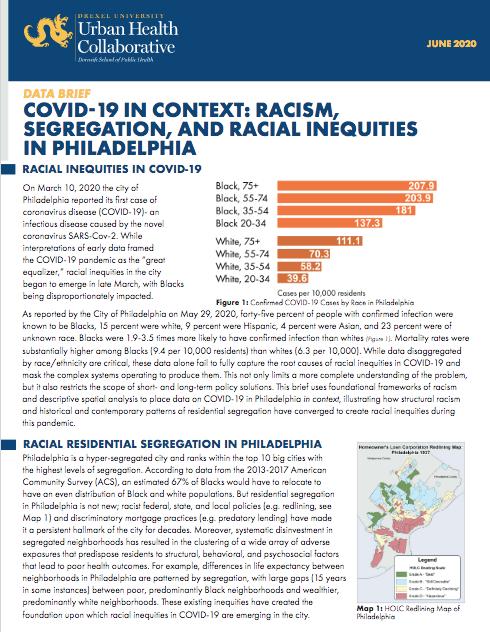
3 minute read
Research and Practice
Creating a COVID-19 Vulnerability Data Tool 7 Amy Carroll-Scott, PhD, MPH, policy and community engagement core co-lead, and Félice Lê- Scherban, PhD, MPH, training core co-lead, were one of seventeen awardees for Drexel University’s Rapid Response and Development Fund. Their project “Creating a COVID-19 Urban Vulnerability Data Tool to Inform Mobilization and Coalition-Building” created a web-based data tool to assess risk indicators and identify areas and sub-populations within Philadelphia that will experience the highest burden of COVID-19 and its economic impacts. Identifying which areas of the city will be most vulnerable to COVID-19 health and socioeconomic impacts will be immediately useful to the wider Drexel community, West Philly Promise Neighborhood, and public and private agencies throughout Philadelphia to inform allocation of resources and focus of response efforts.
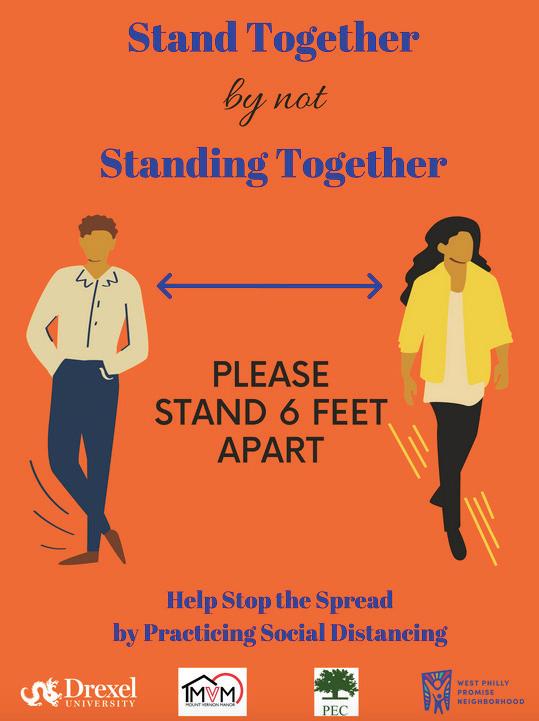
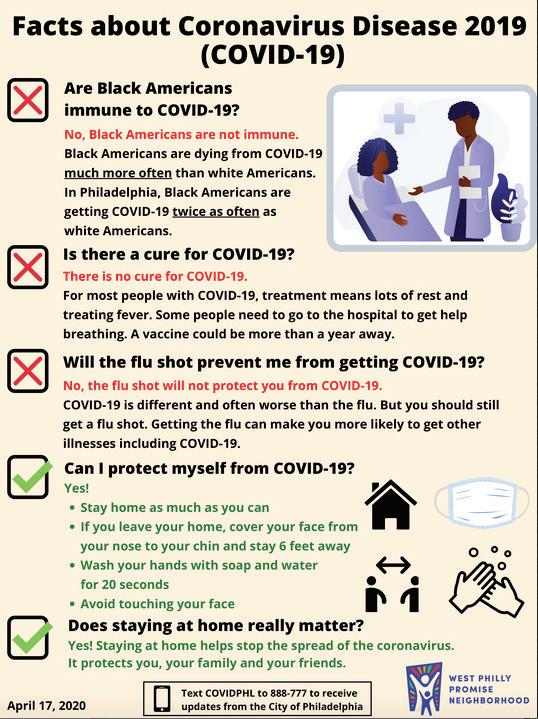
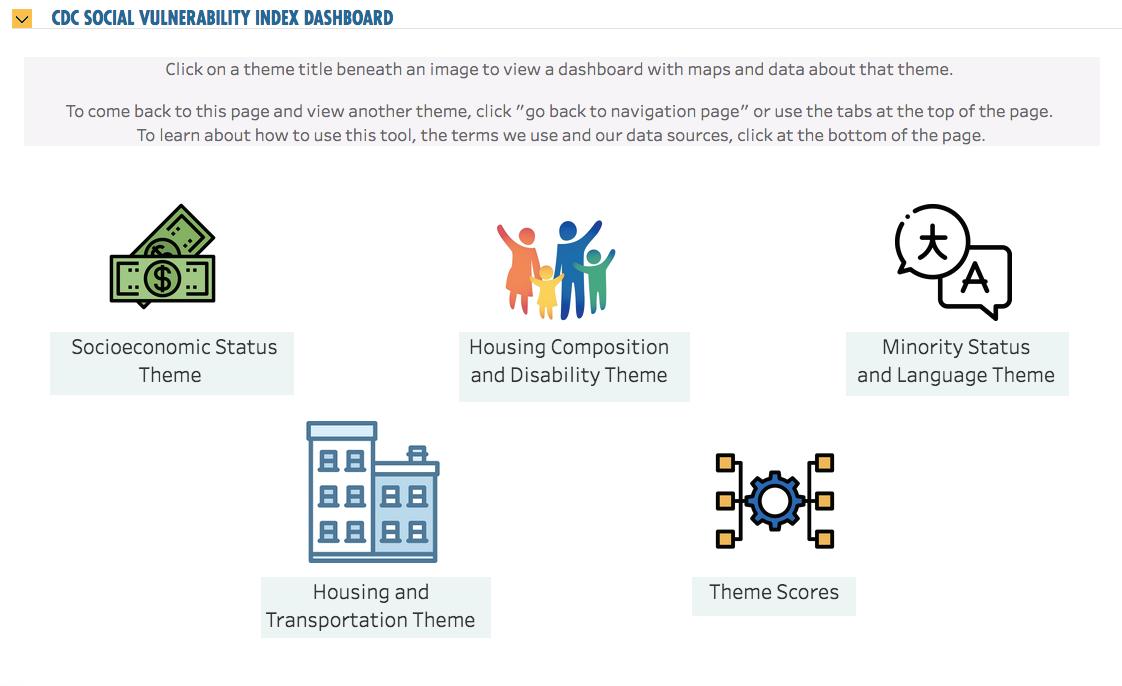
West Philly Promise Neighborhood COVID-19 Community Resources The West Philly Promise Neighborhood team has come together with program partners, civic leaders, neighborhood residents, principals and school leaders to assess the needs of the local community and mobilize to meet them. The West Philly Promise Neighborhood project team developed radio messaging, posters, and infographics on various COVID-19 related facts and resources available during the pandemic and shared them with City agency leaders, West Philly partners (including food distribution sites), and via social media. During the height of the pandemic, resource bags containing cleaning supplies, educational supplies, and COVID-19 information and resources were distributed to civic leaders and neighbors daily.
Lives Were Saved Stay at Home Orders As the attention of media, leaders, and urban residents around the world grappled with emerging information about the COVID-19 pandemic, stay-at-home orders were issued for almost all large cities globally. Actions to limit the immediate threat from the coronavirus had social and economic costs, jeopardizing livelihoods and transforming daily life, making quantification of the benefits vital to informed decision-making. In partnership with the BCHC the UHC developed estimates of lives saved by stay-at-home orders in all 30 cities of the BCHC. Methodology for calculating estimates were developed and shared to the UHC by one of our NNIP partners, Community Information Now (CI:Now), a nonprofit committed to democratizing data, serving south-central Texas. These estimates were widely disseminated and cited by over 35 media outlets as well as by policymakers, including: Pennsylvania Governor, Tom Wolf, Philadelphia Mayor, Jim Kenney, and Mecklenburg County, North Carolina Manager, Dena Dioro.

Latin American COVID-19 Dashboard A new online dashboard developed by the SALURBAL project allows visitors to plot trends of COVID-19 cases and deaths as well as to map these outcomes at various geographic levels: country, city, and sub-city in Latin American countries and compare the progress of the pandemic across cities. Using data compiled by Johns Hopkins University and from Latin American country governments, this online dashboard generates visualizations which can be tailored to the information needs of website visitors and which can be downloaded and shared. The data is currently been used in various analyses of how city characteristics influence COVID- 19 outcomes.
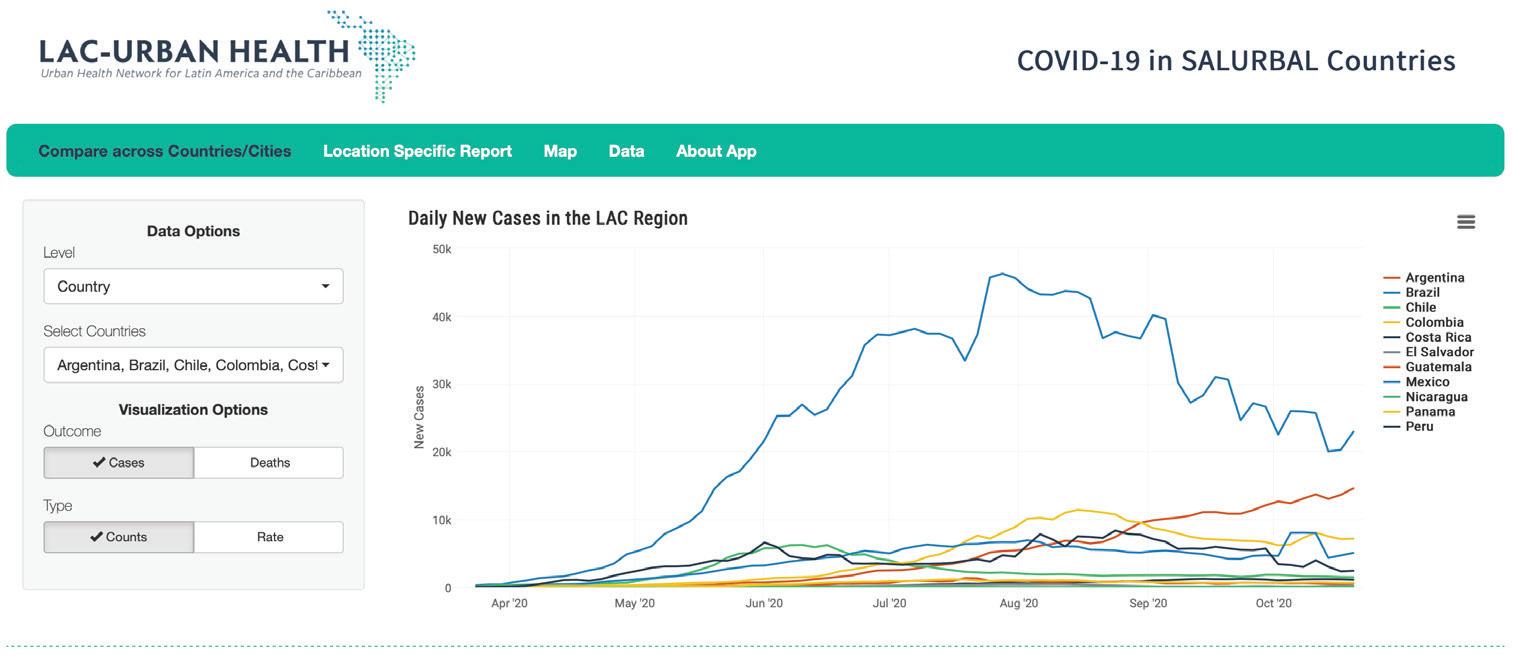
UHC in the Media Over the past year several UHC faculty have served as expert resources for a broad range of media outlets. UHC faculty experts spoke to the media on a variety of topics and pressing public health issues including racism and its impact on public health; disparities in COVID-19 testing, and racial and ethnic inequities in new coronavirus infection and mortality. UHC work on lives saved by the lockdowns was also widely cited in the media. Faculty have also spoken out about social inequalities globally and discussed the impact of the COVID- 19 pandemic in Latin America, in addition to many other topics. UHC experts were featured in local, national, and global media outlets including: The New York Times, The Washington Post, The New Yorker, Rolling Stone, WHYY, NPR, CNN, The Philadelphia Tribune, The Philadelphia Inquirer, Smithsonian, and Harvard Political Review to name a few.




